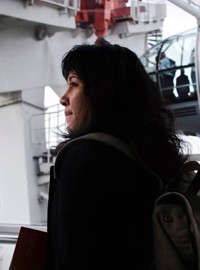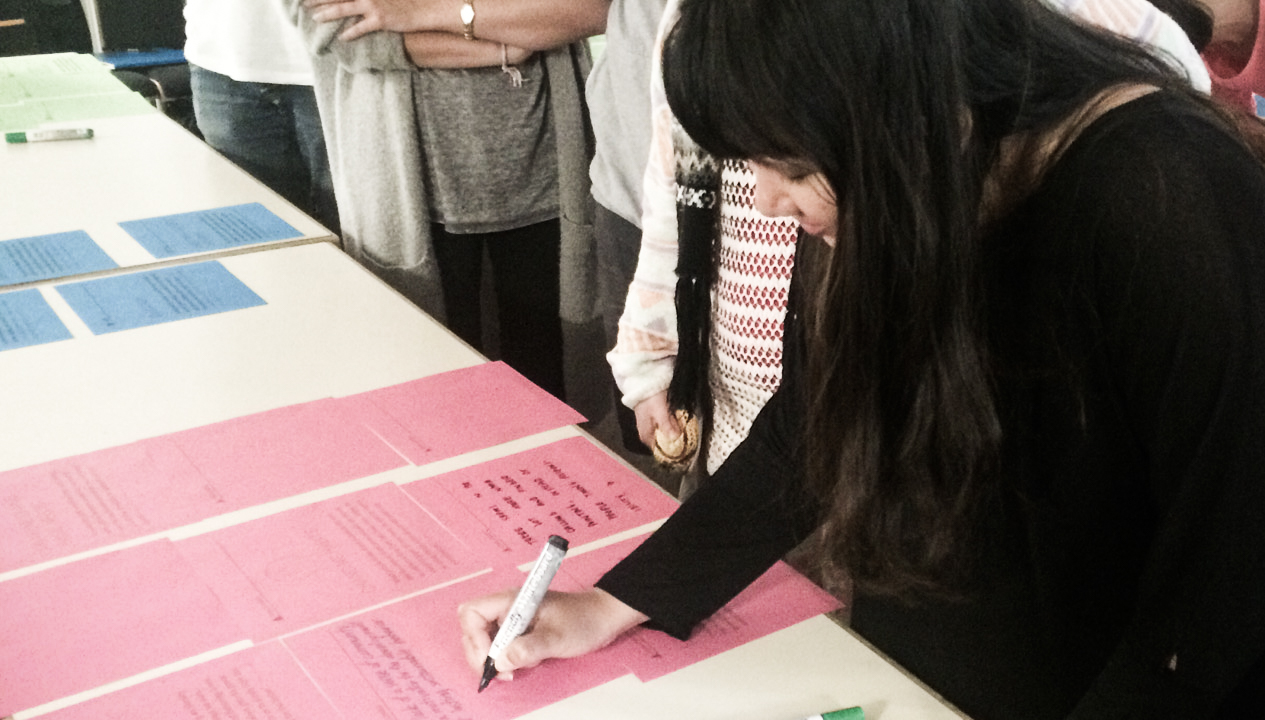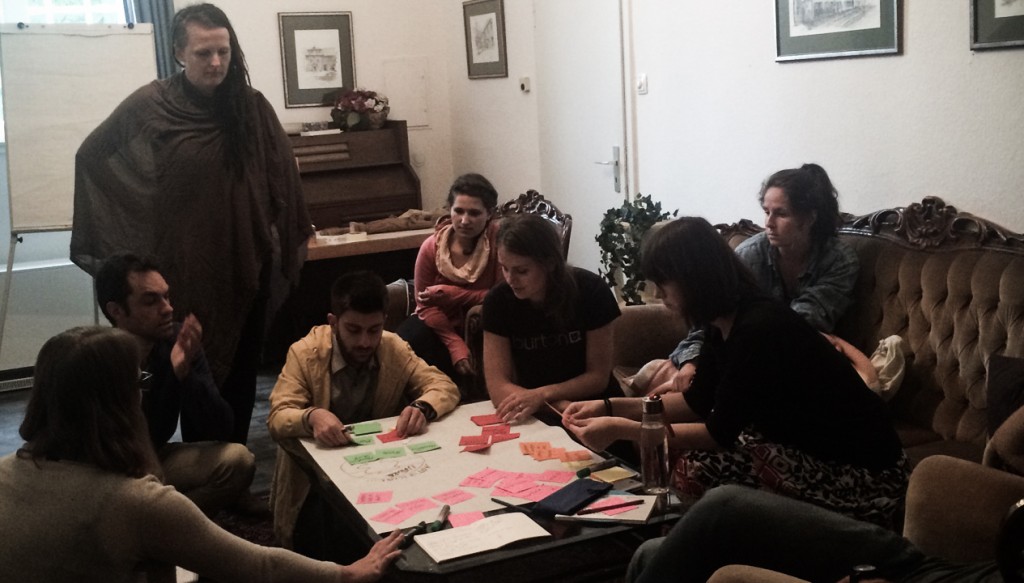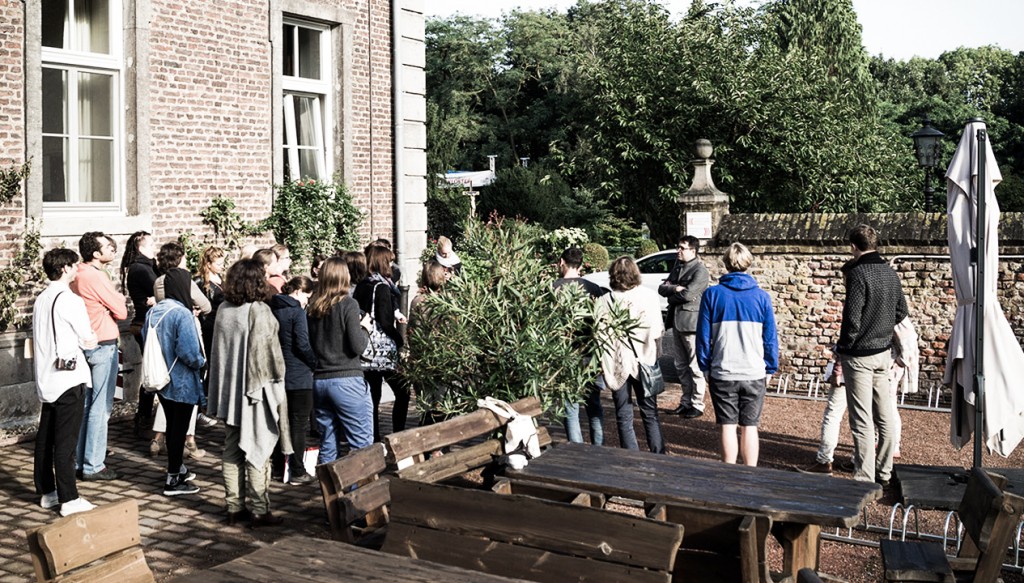In the 2nd of our three part Sustainable Summer School blog series, Graphic Design student and Co-founder of the ArtCenter Business Club, Janya Menges reflects on her time spent at the 7th annual summer school program in Western Germany.
 In the pursuit of sustainability, I’ve realized a simple truth – we all care about how we live our lives, our happiness and how we can live in a better world. Sustainability is not just about green energy or a stamp of approval from an organization – although it’s reassuring to know that businesses care about where their energy comes from and whether their products are up to standards for approval – it’s also about understanding the invisible burden products or actions carry with them.
In the pursuit of sustainability, I’ve realized a simple truth – we all care about how we live our lives, our happiness and how we can live in a better world. Sustainability is not just about green energy or a stamp of approval from an organization – although it’s reassuring to know that businesses care about where their energy comes from and whether their products are up to standards for approval – it’s also about understanding the invisible burden products or actions carry with them.
Invisible burdens were discussed during the 7th Sustainable Summer School in conjunction with hot spots in sustainability which were housing, mobility, clothes, food, electrical devices and packaging. Often times, consumers don’t see the invisible burden that carries with a product before purchased because the burdens are often intangible, for example, carbon or chemical emissions during production or transportation to retail stores, the well-beings of the workers or if they’re getting fair wages and safe working conditions, these are just to name a few. It also encompasses the decomposition of the material after use – are businesses, manufacturers and consumers fully aware? How can we allow consumers to understand the invisible burden that it carries?
The discussions at 7th Sustainable Summer School addressed such topics in the three workshops under the theme of exploring ways for sustainable transformation in a limited world. The three workshops were mental models, transformational narration and time to change. As a graphic designer, I really wanted to learn how to better communicate sustainability with pertinent data that will allow consumers and businesses to understand the importance of sustainability for products, events or travels. I was intrigued by transformational narration lead by Bernd Draser and Angela Spizig because I felt learning to tell stories becomes a joyful vehicle to learn about sustainability rather than direct moralization. The workshop experience was amazing, not only the knowledge exchanged but the constructive criticism from other participants as well. It was very refreshing to hear what other countries were doing in terms of sustainability as I got views from Germany, Italy, Spain, Portugal, Austria, Australia and New Zealand. In addition, the experts who shared their views and their professions like land restoration from Commonland, entrepreneurial thinking for sustainability from the Club of Rome and preserving quality through interaction from the Konzerthaus Berlin. All of which took very different approaches for a common cause to establish a common language.
The beautiful 16th century monastery in Jüchen, Germany was the perfect setting living amongst nature, history and monks. The simplicity in everyday’s routine – as Bernd Draser would say – revolved around two ‘eternal truths: lunch at 12pm and dinner at 6pm otherwise everything else is negotiable.’ The limitation of wifi did not confine us to the striking conversations and exploration around the monastery’s library, gardens and courtyard centered by a humongous tree. The twenty-five participants shared spaces and even though we were limited to technology we were not limited to creativity. The experience has taught me that going in with an open-mind and trusting what I have learned at ArtCenter – the knowledge and skills – can shift design-thinking to something beyond commercialization and the possibilities to disrupt what we truly believe is the way of life, in a way reinstilling meaning to wealth and happiness in a more conscious manner. Above all, the many friendships I’ve formed while I was there; everyone has truly inspired me in their own way and the experience became much more than discussing about sustainability, it was knowing that I wasn’t alone pursuing sustainability.
To read part 1 click here.


